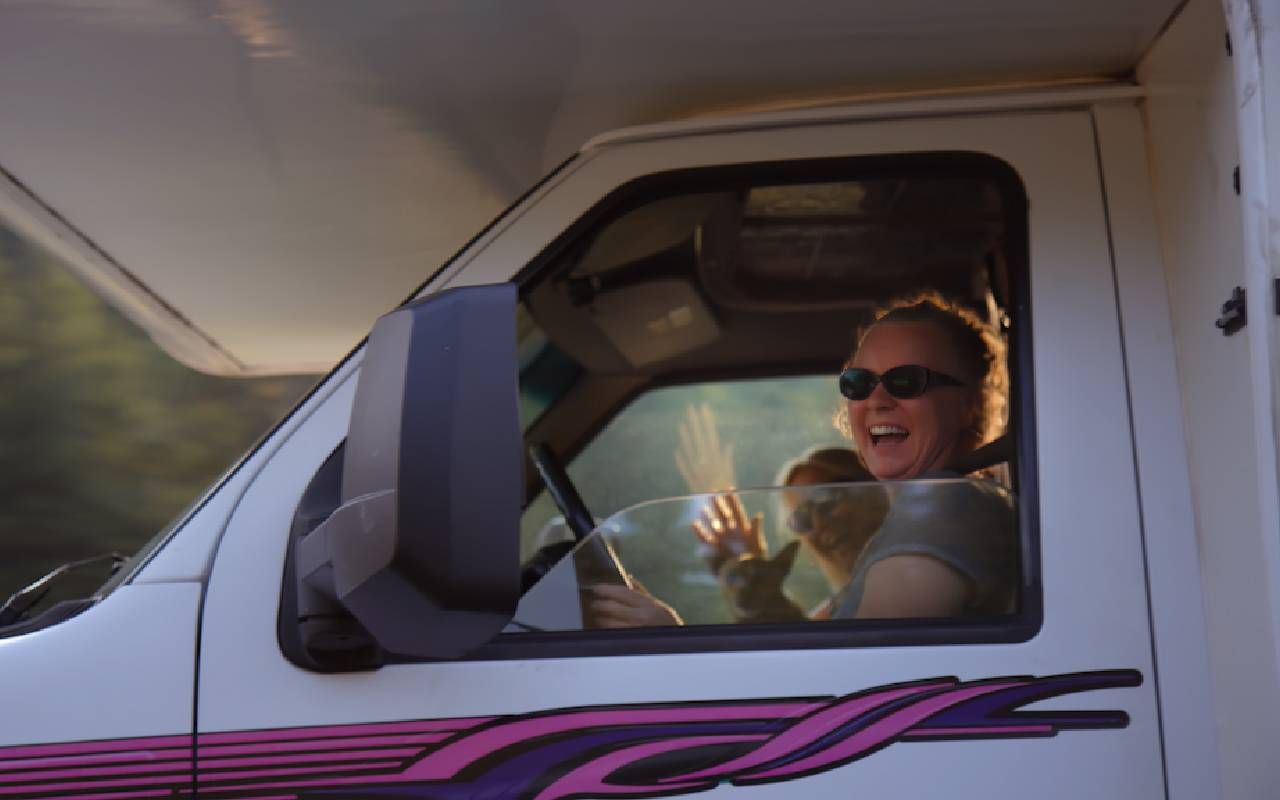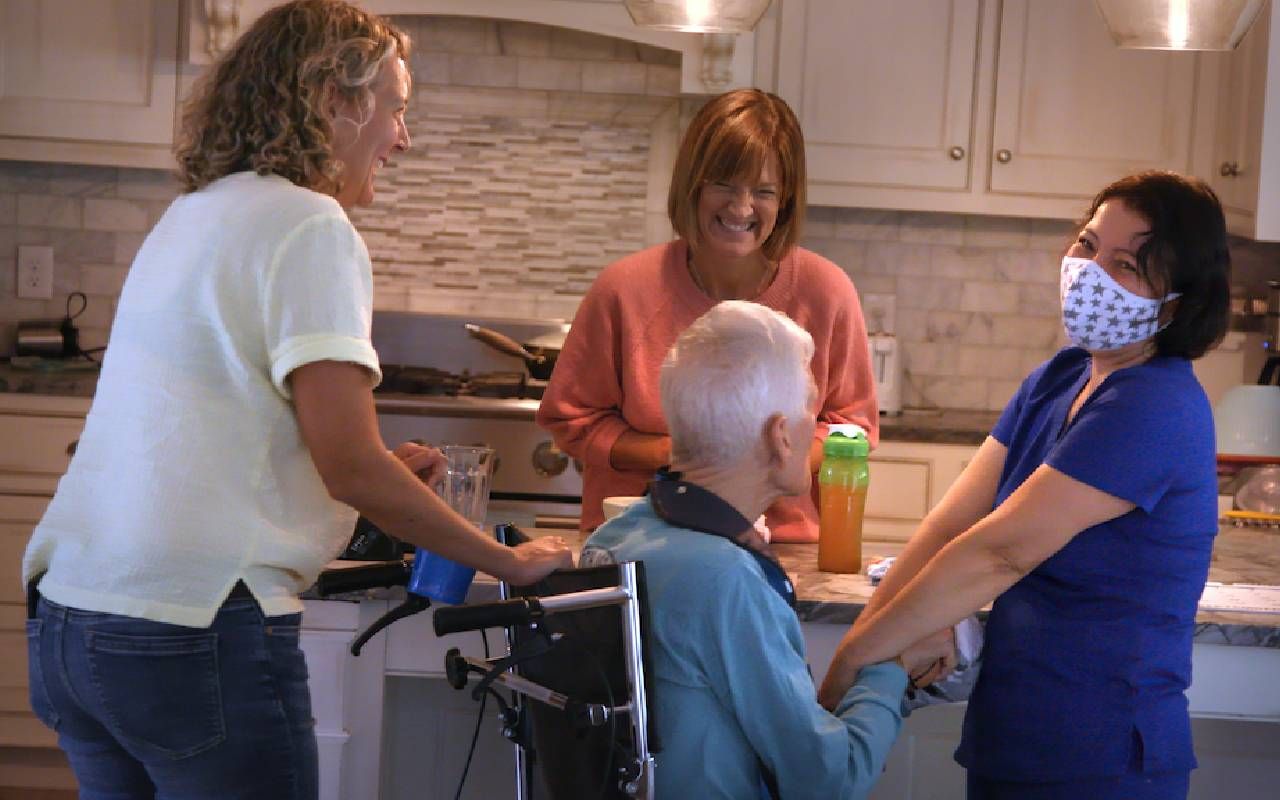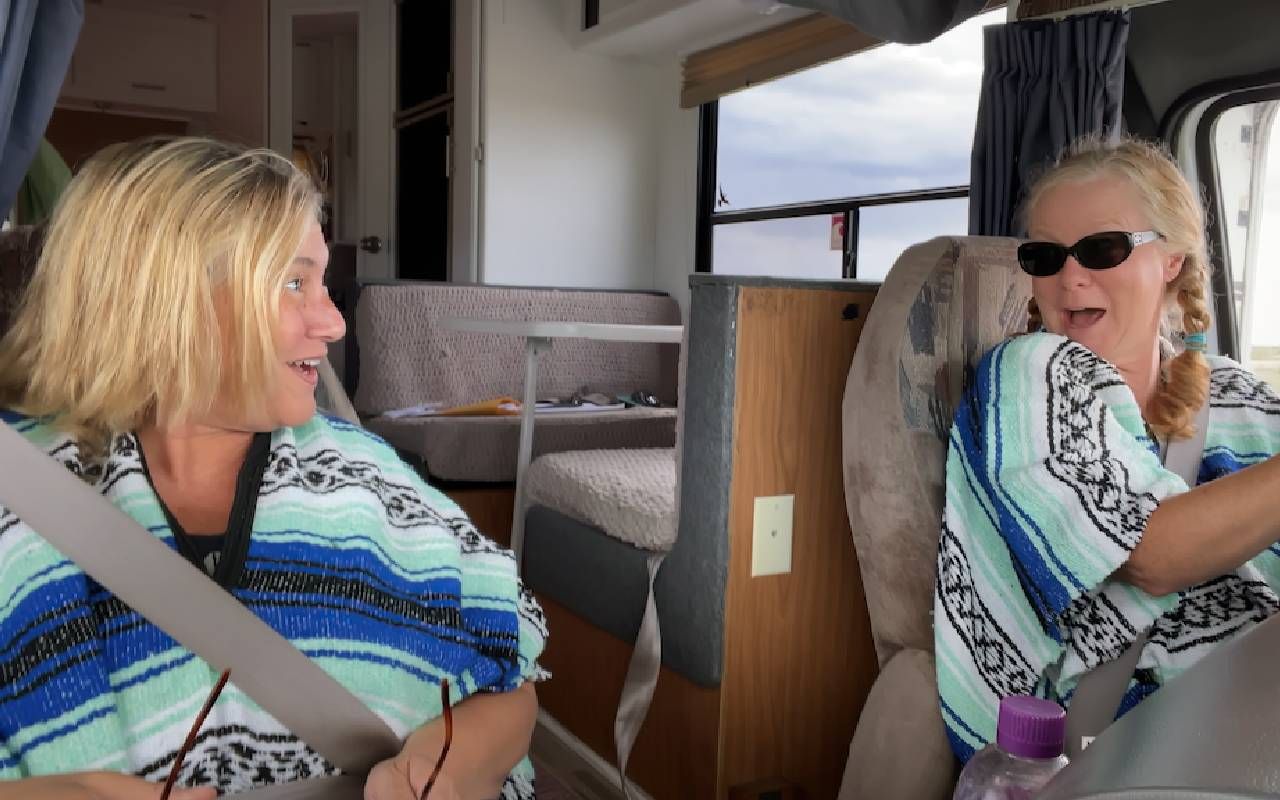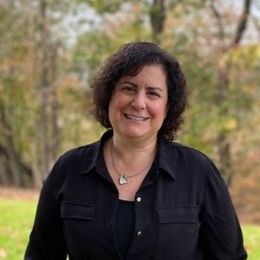Traveling Across America to Thank Fellow Caregivers
Filmmaker Kitty Norton made a documentary called 'Wine, Women and Dementia' about her RV trip across the country to meet caregiving kindred spirits
Editor’s note: Rosanne Corcoran is one of Next Avenue's 2024 Advocates for Aging and is also featured in Kitty Norton's film.
While we are all aware of the tragic narrative of a dementia diagnosis, Kitty Norton vowed to rally against it. She started a blog, Stumped Town Dementia, which she wrote with candor and humor throughout her five-year journey of caring for her mother with vascular dementia.

Now she does it again with her insightful and touching documentary, "Wine, Women, and Dementia." This film brings viewers into the real-world experiences of dementia caregivers from diagnosis to death, with a focus on support, laughter and camaraderie along the way.
Norton always knew the importance of support in dementia caregiving. Her blog not only helped her through caring for her mother but also created an opportunity for caregivers going through similar journeys to connect.
That's why, when her mother passed, Norton made the bold decision to purchase an RV and drive across the country to visit these caregivers who had become such a big part of her life, even though they were never physically in the same room together.
Norton's journey took her from her home in Oregon to Seattle to visit Allison Schrier, who cared for her husband with frontotemporal dementia. She continued eastward to Chicago where she met Ashley and Grace Douglas, who were caring for their mother with Alzheimer's.
From there, her trek continued to New Hampshire where Lindsay and Matt Perrin were caring for her father with Parkinson's disease and his mother with Alzheimer's. Next up was me, in Pennsylvania where I had cared for my mother with vascular dementia. Norton takes a much-needed rest in Atlanta to visit her friend Nicolette Valdespino, who cared for both her mother and her grandmother with Alzheimer's, and finishes the journey in Texas with Veronica Shanklin, who also cared for her mother and grandmother with Alzheimer's.
The thoughts, reflections, emotions and community of all the individuals she visited are the basis of "Wine, Women, and Dementia."
I recently spoke with Norton from the home where she cared for mother in Oregon and asked her to tell Next Avenue readers her story.
Her comments have been edited for length and clarity.
How It All Began
In July of 2016, I was working in post-production (in films) in Los Angeles. I had a big break of a month and a half before my next project. It was a Wednesday when I got the call, and my last day in that job was going to be on Friday. I was flying out the next week to come up north and see my mom and dad, and I was only supposed to stay a month. Initially, I said, 'Well, I'll be home on Friday,' and my sister Lexie said, 'You need to be home now.' My dad died a few weeks later.

Through all of that time, it was clear Mom couldn't live on her own. We were both pretty aware of that anyway, but it was definitely clear after we'd spent three weeks trying to help Dad and keep Mom engaged. It was clear that Mom needed somebody to live here. That was it. Lexie had her home and her job, but she could come and stay three days and nights here in between her gigs, and I just quit my job. We [she and her boyfriend Wyatt] moved into Mom's basement because she had a split level. We started on a journey [and] we had no idea what we were doing.
On the Road
There's never one answer when dementia is ending. There are smaller things; I needed freedom, I needed escape and I needed to walk away after Mom died and not be here. But what I really needed to do was thank five people in particular for being there for me even when they didn't realize it.
Whether it was an email when I was having just the world's worst day and it would crack me up, or someone saying something I wrote was so funny and resonated with them, all of that support was incredible. These caregivers were my support. I didn't have any idea about the movie at the time. It was afterwards that it all kind of came together in steps.
In that first month after Mom died, I thought about driving to see all of them and talking to everyone about this journey. And then I thought well, maybe those conversations would be really helpful for other caregivers, let's see if these conversations could turn out to be a documentary.
From there, it just kind of kept building and building. And that's when it turned into a month-long journey with a film crew and a RV and madcap adventures and almost ripping the top of the RV off and finding a dog that was dying. It also turned into a lot of healing for me, and I got to meet everyone in person and have my dream night which was 'let's open a couple bottles of wine and just process and talk and laugh.'

We all came together from the humor in the blog, because that was one of our coping mechanisms in our caregiver toolkits. It was really important to me to just be able to sit and have that experience in person.
We recorded Alison in August, a month before we set out on the production tour in September. That was a real test to come back and make sure that what we were getting was at least something that I would want to see — and the content was amazing. That was when I realized this is something I want to put together and if there's only ten other caregivers on the whole planet who want to see it, it's gonna be worth it.
Returning Home
I didn't know what the film was going to be, but I knew the story it was going to tell. I never envisioned being in it. It was a process to get to what the film is now, and it took a lot of talented people to help get there.
"I didn't know what the film was going to be, but I knew the story it was going to tell."
I got really depressed after I came back. That was such a high and it was such a distraction and then I get back and my mom is [still] gone. I still live in her house and it was hard. I was back at the end of September and it probably wasn't until the end of November that I finally thought, let's get going here. So that was hard. We really started in earnest, probably in December, on postproduction. We had a very small team and then the film was finally done and delivered at the end of August of the next year (2022).
Reaction to the Film
I hope the caregivers who see this feel seen and heard and I know that's happening. At the screenings at festivals [including Santa Monica Film Festival and Vero Beach Film Festival], you walk out and people just want to touch you. They want to talk to you. I think what's really important is they recognize that somebody saw them and somebody understands, and they don't want to let go of what they just felt for 87 minutes and that's amazing. That's such an honor to have people feel like that about something that we've made.
I knew I wanted it to be impactful. But this is more than I thought — to have people cry, come up and hug me and cry tears of joy. They're just so happy that somebody has shown them themselves. They aren't the ones up on screen, but it's their stories that are being told. It's their emotions that are being felt. It's their horribleness, it's their triumphs. It's the whole thing. And they're thrilled.
I just think that every caregiver is unique. Every caregiver is struggling. I found my favorite caregivers, and I'm meeting new ones constantly. Don't give up on yourself and don't give up on making connections. You kind of have to put yourself out there a little bit and it's gonna pay off so much. This s*** is hard. Don't do it on your own. You won't survive it.
Special Virtual Screening of "Wine, Women and Dementia"
Join a special virtual screening in honor of Mother's Day from Friday, May 10 through Sunday, May 12th. Register here https://watch.showandtell.film/watch/mothersday https://www.winewomenanddementia.com/. The documentary will also be shown on PBS in November 2024.

Rosanne Corcoran, a 2024 Next Avenue Advocate for Aging, is the creator and host of Daughterhood The Podcast. She spent many years as a sandwich, in-home caregiver for her mother who had Alzheimer’s disease.
Read More

